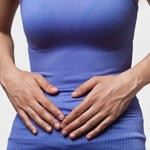Bowel Movement Blues?
What do your bowel movements tell you about your health? I’ve heard that their appearance can yield valuable information, but I don’t know what to look for.
Andrew Weil, M.D. | December 26, 2011

The process of elimination can tell you a lot about your general health. On average, it takes 40 to 45 hours for wastes from your food to make the trip through your gastrointestinal system and exit your body. The first thing you should know is that there is a wide range of normal when it comes to the frequency of bowel movements: every other day, once a day, twice, three times, are all normal habits of elimination. A change in your long-term pattern might mean something – but consider any recent changes in your diet before you start to worry.
Ideally, stool should be large, soft and easy to pass, but diet and some drugs affect digestive function and can cause changes. Blood pressure medications, opiates, antihistamines and antidepressants can slow transit time through the digestive tract. When this happens, stool tends to be harder and drier than usual. Dairy products sometimes can cause this, too, so it’s worth cutting back on your intake if you’re constipated.
According to the National Institute of Diabetes, Digestive and Kidney Diseases more than four million Americans have frequent constipation, accounting for 2.5 million physician visits a year. Medically speaking, constipation means having fewer than three bowel movements a week, with stools that are usually hard, dry, small and difficult to pass. The problem may be too little fiber in your diet, which you can remedy by making sure that you eat lots of vegetables, wheat bran, whole-grain breads and cereals and fruit. If you can’t get enough fiber from your diet, consider powdered psyllium, available at health food stores, as a supplemental source. Be sure you’re drinking plenty of water, getting daily exercise, avoiding caffeine and tobacco.
Changes in the appearance of your stool sometimes can signal health problems. If you develop any of the following, be sure to see your doctor:
- Change in color: The normal color of stool comes from bile excreted by the liver to break down fats. If your bowel movements look pale or gray, the problem could be a blockage in the route bile travels from the liver. Pancreatic disorders can result in a grayish colored stool.
- Blood red: This can come from something you’ve eaten – beets, for example. When the red you see is unmistakably blood, chances are the problem is a hemorrhoid or a small fissure. Blood from the upper gastrointestinal tract comes out black and tarry. Blood in the stool can be a symptom of colon cancer, so take it seriously.
- Pencil thin: If you notice that your stool has become consistently thin (the size of a pencil), the change could be from polyps in the colon or colon cancer.
- Black stool: Here, the problem could be iron, particularly if you’ve just started taking supplements. (Iron is also constipating.)
- Stinky and greasy looking: If your body isn’t absorbing fat properly, your stool can turn a yellowish color and smell a lot worse than usual. This may signal celiac disease or a problem related to fat absorption. Other possibilities: the fake fat, Olestra used in some snack foods, or the weight-loss drugs Xenical or Alli.
Andrew Weil, M.D.









